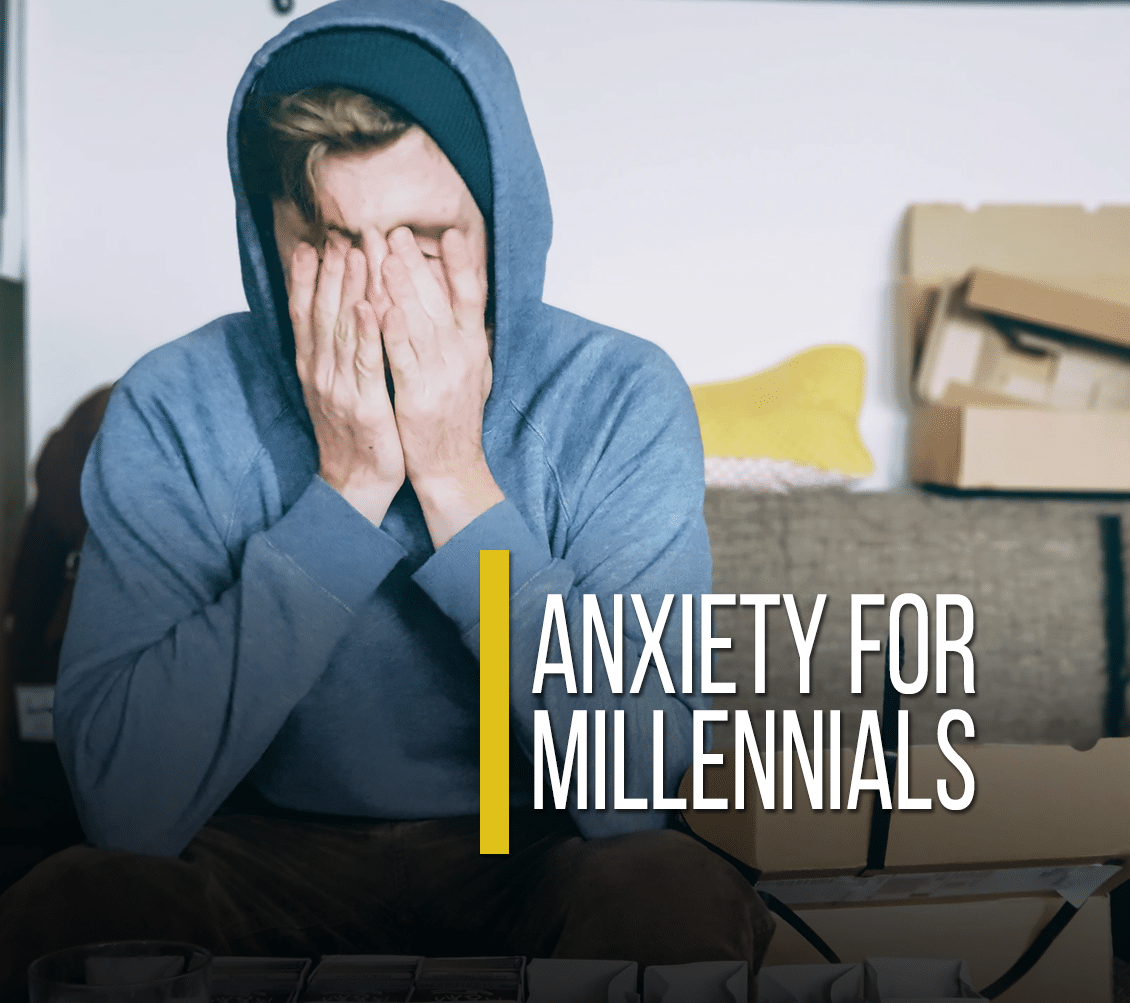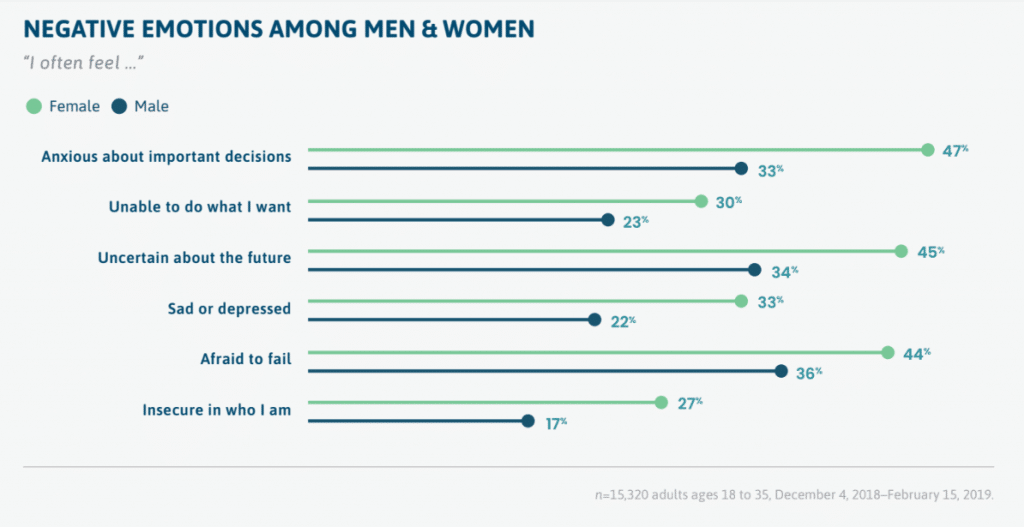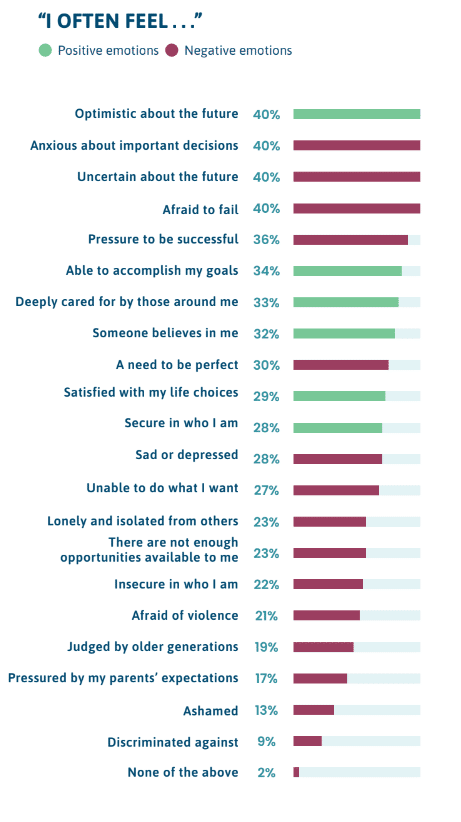Recently, Barna released a study they have been doing on the millennial generation which they are calling The Connected Generation. To clarify, that is the title of the survey, but also what they are calling people who in 2019 are in the age range of 18-35. In the study, they found three important distinctions for this generation which they have tied to the faith perspective. Within this article, we will only be focusing on the first of how millennials are more anxious than previous generations.
The report notes that the Connected Generation has too many sources of anxiety due to their always online, unfiltered world news, and seeing every social media post relationships. Barna makes this correlation with the survey results, stating “Despite being digital natives, relational connection is lacking for most young adults.
Only one-third of the connected generation (33%) says they “often feel deeply cared for by those around me.” The same proportion (32%) indicates that “someone believes in me.” (p. 24, The Connected Generation) They also note youth are not optimistic about the future (40%), don’t feel able to accomplish their goals (34%), and are anxious about important decisions which define who they are as an individual. A graph outlines several of these and how they differ between men and women.
Not Cared For
This is the work of the church. Our job is to not only to share the Gospel, but be the hands and feet of Jesus to others within discipleship, service, and community. On top of the statistic above that 67% of the connected generation does not feel cared for, “nearly one in four (23%) encounters feelings of loneliness and isolation.” (p. 46, The Connected Generation) The number is lower for Christians (19%) and significantly higher for people without faith (31%), but I am concerned that churches and Christians are actually adding to the anxiety concerns.
We have a simple solution, go invest in the next generation. Say hi, ask about life, invite them over to dinner, talk about life more, offer support, and make deep, rich connections with them. Not only will this have a strong impact for your congregation and this person’s spirituality, but the survey pointed out how this impacts the connected generation in their mental health.
If you don’t know what to talk about with regards to mental health, that’s okay. The National Alliance on Mental Illness cites a 2015 study which says ” Millennials are more likely to talk about mental health than their parents or grandparents. As more people speak out, the stigma surrounding mental illness is beginning to lessen.” Just talk.
What is your church doing for people who are anxious?


